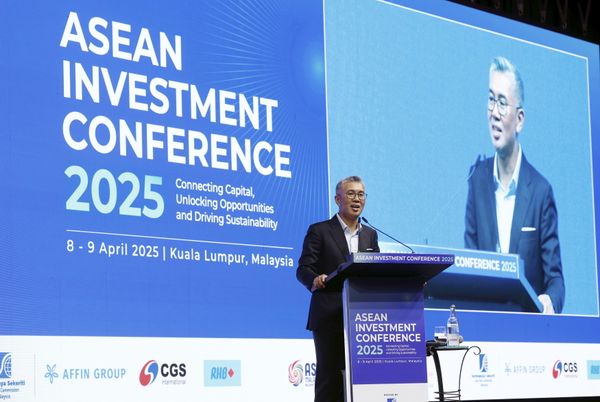By Danial Dzulkifly
KUALA LUMPUR, April 8 — Asean may have pulled in a record US$224 billion (RM1 trillion) in foreign direct investment (FDI) last year, but its future growth is on shaky ground unless the region speaks with one voice, Investment, Trade and Industry Minister Tengku Datuk Seri Zafrul Tengku Abdul Aziz cautioned today.
Delivering the closing keynote at the Asean Investment Conference 2025, he said the recent wave of tariff announcements by the United States (US) had created a cloud of uncertainty for Asean’s open economies, including Malaysia, Indonesia, Thailand, Vietnam, the Philippines, and Singapore.
“As Asean chair this year, Malaysia takes seriously the responsibility of helping the region navigate turbulent waters. Its growth is at serious risk of derailment. We must stand united.
“The challenge ahead is enormous, but if we stay the course and take real ownership of our collective future, Asean will pass this test with flying colours,’’ he said at the Kuala Lumpur Convention Centre today.
To that end, Zafrul announced that Malaysia will convene a special meeting of Asean Economic Ministers this Thursday to craft a coordinated regional response to the US tariffs.
“A united front will help us engage more constructively and from a position of strength,” he said.
Zafrul also pointed out that Asean’s trade with the US totalled US$395 billion (RM1.77 trillion) in 2023, with exports accounting for US$269 billion (RM1.2 trillion). This resulted in a US$126 billion (RM565.8 billion) trade surplus in Asean’s favour.
The figures demonstrated the region’s ability to deliver high-quality, cost-effective products that underpin global supply chains.
Malaysia alone exported nearly RM200 billion (approximately US$44 billion) worth of goods to the US in 2024, led by electrical and electronics, semiconductors, and medical devices — key sectors driving global transformation.
The minister’s remarks echoed those of Prime Minister Datuk Seri Anwar Ibrahim earlier at the same conference, where Anwar called for deeper regional coordination in the face of economic fragmentation and mounting protectionism.
Zafrul noted the ongoing structural reforms under Malaysia’s New Industrial Master Plan 2030, which aim to position the country higher within global value chains.
These include innovative public-private financing tools like the Strategic Co-Investment Fund and MySIF, which have supported over 9,000 micro, small, and medium enterprises via various digital funding platforms.
He also confirmed that Malaysia will host the Asean+3 dialogue on semiconductors and strategic supply chains later this year. The forum will focus on issues like supply chain diversification, talent development, and innovation.
In a bid to empower small businesses and promote inclusive investment, the forum also saw the launch of three new initiatives under the Asean Investment Challenge 2025: the Asean Simplified ESG Disclosure Guide for SMEs, the Asean Investment Challenge, and a fractional shares trading platform enabling investments starting from as low as RM1.


